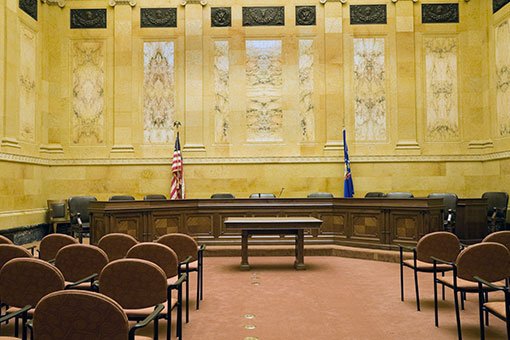Appeals Overview
The Board of Immigration Appeals (BIA) is the highest administrative body for interpreting and applying immigration laws. It is authorized up to 17 Board Members, including the Chairman and Vice Chairman who share responsibility for BIA management. The BIA is located at EOIR headquarters in Falls Church, Virginia. Generally, the BIA does not conduct courtroom proceedings – it decides appeals by conducting a “paper review” of cases. On rare occasions, however, the BIA hears oral arguments of appealed cases, predominately at headquarters.
The BIA has been given nationwide jurisdiction to hear appeals from certain decisions rendered by immigration judges and by district directors of the Department of Homeland Security (DHS) in a wide variety of proceedings in which the Government of the United States is one party and the other party is an alien, a citizen, or a business firm. In addition, the BIA is responsible for the recognition of organizations and accreditation of representatives requesting permission to practice before DHS, the immigration courts, and the BIA.
BIA decisions are binding on all DHS officers and immigration judges unless modified or overruled by the Attorney General or a federal court. Most BIA decisions are subject to judicial review in the federal courts. The majority of appeals reaching the BIA involve orders of removal and applications for relief from removal. Other cases before the BIA include the exclusion of aliens applying for admission to the United States, petitions to classify the status of alien relatives for the issuance of preference immigrant visas, fines imposed upon carriers for the violation of immigration laws, and motions for reopening and reconsideration of decisions previously rendered.
The BIA is directed to exercise its independent judgment in hearing appeals for the Attorney General. BIA decisions designated for publication are printed in bound volumes entitled Administrative Decisions Under Immigration and Nationality Laws of the United States.
Can I do anything about an unfavorable decision issued by USCIS?
Yes, you may file an appeal on some unfavorable decisions to the USCIS Administrative Appeals Office (AAO) or the Board of Immigration Appeals (BIA), an office within the Department of Justice. Your denial notice will provide information about whether the decision may be appealed and where to file your appeal.
With certain exceptions, you may file a motion to reopen or motion to reconsider if you received an unfavorable decision in your case. You may file a motion with USCIS even if you do not have any appeal rights. You may also file a motion regarding a decision made on an appeal.
What is an appeal?
An appeal is a request to a higher authority to review a decision.
What happens when I file an appeal?
When an applicant or petitioner appeals a decision to the AAO, the officer who made the original decision will first review the record. A review of the record will determine whether the evidence or argument submitted in the appeal warrants reopening or reconsidering the decision. If the adjudicating officer determines that reopening or reconsidering the decision is not warranted, the officer will forward the case for further review to the AAO or the BIA.
Note: Filing an appeal does not suspend the execution of any decision made in your case or extend a previously set departure date.
When do I file an appeal?
Generally, an appeal should be filed within 30 days from the date of the decision (not the date the decision was received). A shorter appeal period may apply to some cases. Your decision will tell you when the appeal period ends. There is no extension to this deadline. Only a brief to support a filed appeal may be submitted after the deadline.

